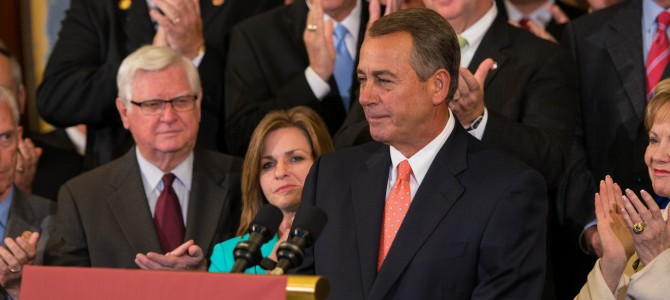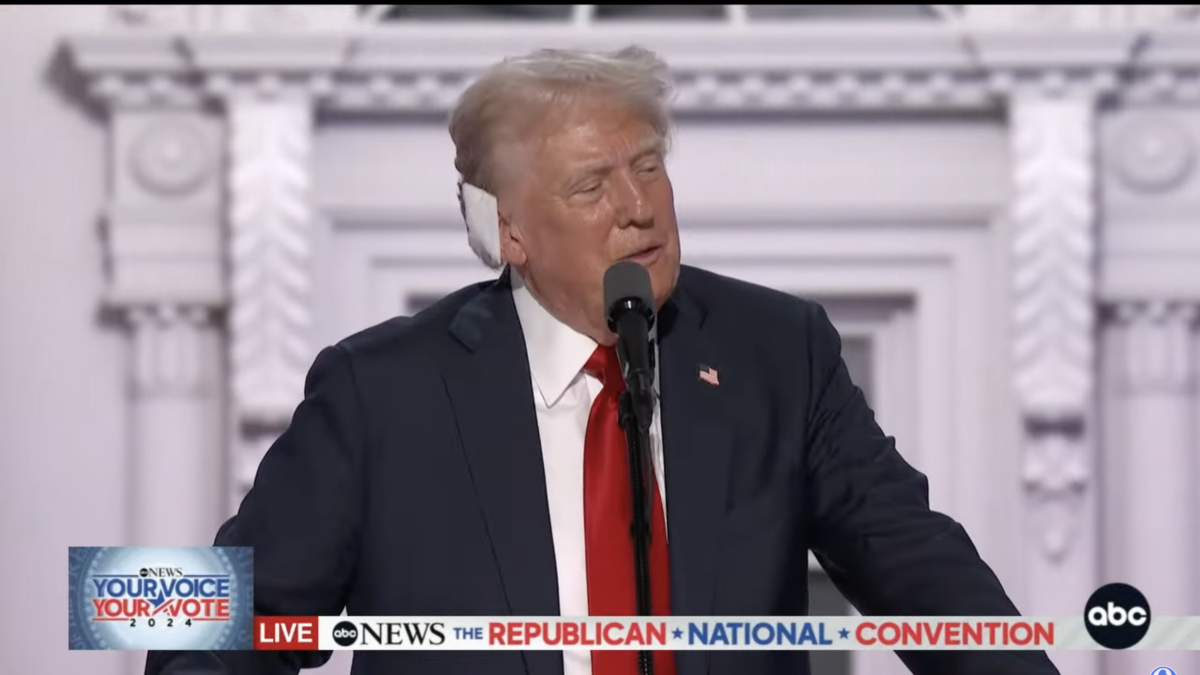Liberals pundits and politicians like to refer to them as “hostage takers,” “anarchists,” “political terrorists,” “lemmings with suicide vests,” and so on. Grassroots conservatives think they’re a bunch of weak-kneed RINO defeatists. They have no charismatic stars, few compelling ideas, no one leading a grand ideological Gingrich-like charge against liberal institutions. There is no cohesive strategy to speak of, no Tom Delay whipping the troops into line, no ideological cohesion and no chance of winning very much.
And they’re probably the best thing going in Washington right now.
As we maneuver through another shutdown saga, John Boehner’s fate reminds me of the scene in Woody Allen’s Love and Death, in which a blundering war hero, returning from the Napoleonic Wars, is confronted by a Russian nobleman:
Nobleman: I understand your heroism was quite inadvertent.
Allen: You should have such inadvertent heroism.
There is a metaphysical truth that most small-government types would likely agree on but rarely admit: most of the time doing nothing is a lot more constructive than doing something. And no one’s done nothing quite like the Boehner-led House. Sure, there’s a lot of big talk from Republican Senators, but it’s the House that doesn’t get stuff done.
After the passage of health care reform, the most consequential legislation in many of our lifetimes (enacted without a single vote from the minority), a new regulatory regime for the financial sector and a near-trillion dollar stimulus that funded an array of left-wing hobbyhorses, proper checks and balances finally kicked in. The House slowed the progressive agenda in 2010, stopping the majority’s steamrolling. Unless the GOP loses House in 2014, Obama’s seen his last major reform.
And when the House “anarchists” do hold out, as they did with the debt ceiling in 2010, they’ve compelled the majority to genuine compromise. Now, according to the Congressional Budget Office, sequestration only trims around $44 billion in 2013— or a 1.5 percent of the budget. Sad as it is, that makes sequestration one of the most successful spending cuts in the past two decades. Even more significantly, it illustrated to many voters that, contra the Chicken Littles, a cut isn’t tantamount to national suicide.
That’s not to say that this brand of “hostage taking” (née “negotiations”) hasn’t taken its toll. It seems that pundits have suffered most. “Is this the kind of government our Founders envisioned?” asks a worked-up Roger Simon in Politico. The answer is, yes, it probably is. In a Republic, majoritarian rule is checked and the president doesn’t get to unilaterally dictate which legislation is negotiable.
Obamacare passed. The Supreme Court told us that government coercing Americans to purchase health care is kosher. Americans went ahead and voted for Obama a second time around. That’s life. And political reality means that Republicans probably won’t be able to stop Obamacare any time soon – if ever. At some point, they’ll fold.
But in the meantime, the minority is using every leverage point available to them to try and slow implementation. This is neither unprecedented nor unfathomable. Do they know what the hell they’re doing? I doubt it. But, at the end of the day, the country is still talking about Obamacare rather than some phony administration “job bill.” That’s a win.
The Washington Post’s Dan Balz recently pointed out that House Republicans “are continuing to grapple unsuccessfully with what it means to be a governing party.” This is true. Being the party of limited government (well, rhetorically at least) puts you at a governing – and political – disadvantage. In today’s world “doing something” is the only way to do something. But the GOP has been an effective opposition party. Boehner, even if his heroism happens to be mostly inadvertent, doesn’t get enough credit for having stopped scores of progressive ideas, and often in the face of tremendous pressure. Obama, once on track to implement more wide-ranging reforms than any president since FDR, now nips at the margins through Executive Orders, court challenges and regulation by fiat. It’s hardly ideal. But if you believe that’s a positive development, thank the House.









